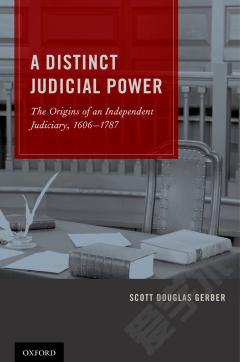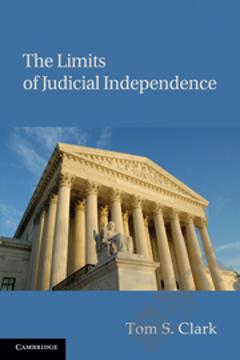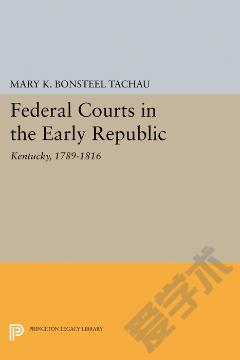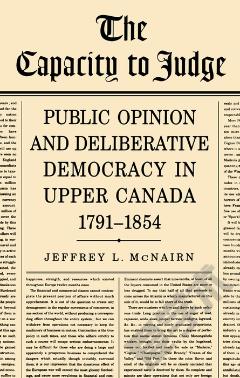A Distinct Judicial Power —— The Origins of an Independent Judiciary, 1606-1787
----- 独特司法权
PREFACE A NOTE ON METHODOLOGY THE POLITICAL THEORY OF AN INDEPENDENT JUDICIARY 1. The History of Ideas: From Aristotle's Theory of a Mixed Constitution to John Adams's Modifications of Montesquieu 2. Article III of the Constitution of the United States II THE JUDICIAL POWER IN THE ORIGINAL THIRTEEN STATES AND THEIR COLONIAL ANTECEDENTS 3. Virginia: Constitutionalizing Judicial Independence Prior to the U.S. Constitution 4. Massachusetts: A "Safety-Valve" Theory of Judicial Independence 5. New Hampshire: Judicial Review in the Rockingham County Inferior Court 6. Maryland: Chancellor Theodorick Bland and Salaries that "ought to be secured" 7. Connecticut: Disestablishment and Judicial Independence 8. Rhode Island: Last Bastion of Legislative Supremacy 9. North Carolina: Governor Thomas Burke and the Origins of Judicial Review 10. South Carolina: Judicial Review without an Independent Judiciary 11. New Jersey: The First State Court Precedent for Judicial Review 12. New York: Persistent Threats to Judicial Independence 13. Pennsylvania: (Almost) Adopting the Federal Model 14. Delaware: A High Court of Errors and Appeals 15. Georgia: Ineffective and Dependent Judges JUDICIAL INDEPENDENCE, JUDICIAL REVIEW, AND INDIVIDUAL RIGHTS 16. Conclusion APPENDIX: POPULAR CONSTITUTIONALISM-THE CONTEMPORARY ASSAULT ON JUDICIAL REVIEW WORKS CITED INDEX
{{comment.content}}








 京公网安备 11010802027623号
京公网安备 11010802027623号